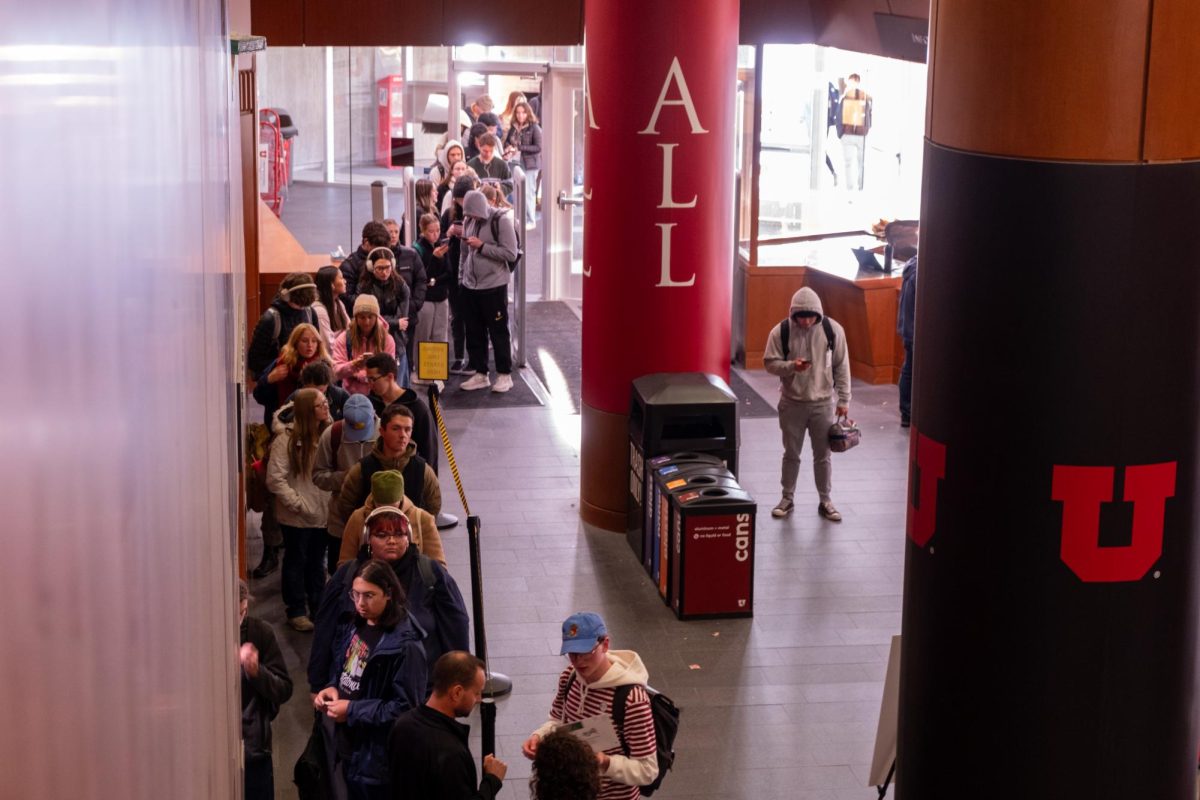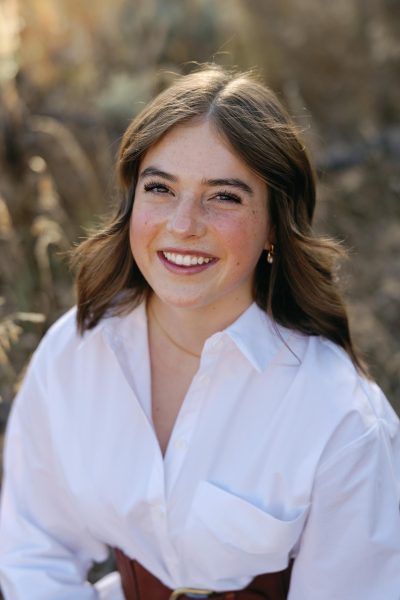Tuesday, Nov. 5, marked Election Day for America. This presidential election cycle started with incumbent candidate President Joseph R. Biden and former President Donald J. Trump each pursuing second terms. It ended with a decisive Trump victory over current Vice President Kamala Harris. Across the University of Utah, students, professors and alumni weighed in on their voting experiences, opinions on the 2024 election and their outlook for the future.
Voting Experiences
Utah affords its voters several methods of voting including mail-in ballots, early voting and day-of voting. For many students at the U, the closest day-of voting location was right on campus: the first floor of the Marriott Library.
Other students voted at locations across the county, like the Salt Lake Public Library. Mackenzie Hobbs, a 2021 graduate from the U’s environmental and sustainability studies program experienced difficulty and frustration with same-day registration and voting at this location.
“My experiences with voting were fairly long and cold. I arrived around 5:00 p.m. at the library. I immediately went to the first line I saw as they were not well-placarded or identified,” Hobbs said in an email statement. “After a few minutes, someone in line directed me to the appropriate line for same-day registration. As I was waiting in that line, a volunteer approached me and indicated that I was in the wrong line again and brought me to a much shorter line. After about 10 minutes, I reached the front of the line for pre-registered voters and was turned away.”
These miscommunications paired with heavy voter traffic led Hobbs to spend roughly two hours registering and voting on Tuesday evening. He mentioned several other students were similarly delayed and forced to wait outside the Marriott Library in the cold.
During a media availability on Wednesday morning, Lt. Gov. Deidre Henderson discussed the long lines voters across the state experienced on Election Day.
“It seems like a fairly normal amount of in-person voting [took place] for a presidential election in Utah, but there were a high number of provisional or same-day voters,” Henderson said. “I attribute that to students, first-time voters who are wanting to vote. I attribute that to a lot of population growth in Utah for the last four years. So there’s a lot of reasons, and we’ll be digging into that and seeing why we have so many in-person lines.”
Olivia Alvarado, a second-year graduate student in the nutrition and integrative physiology department, foresaw issues with voting in Salt Lake County.
“I went to Millcreek because I figured everywhere in Salt Lake would be really busy,” Alvarado said. “But honestly, the one in Millcreek was still busy. The line was long, but I think I got in and out within 30 minutes. The line for people who were registered and people who weren’t registered was probably about the same.”
Voting lines, however, were not indicative of total voter turnout. While numbers remain inexact, between 1,080,000 and 1,200,000 votes were cast in Utah for the 2024 presidential election. This represents at least a 250,000 vote dip compared to the 1,488,289 votes cast in the 2020 presidential election. Yet, one aspect of the election remained unchanged: an early call that Utah and its six electoral votes were going to Trump. This news, along with Trump’s victory later Tuesday night, produced a range of feelings for those on campus.
Reactions to a Second Trump Presidency
Gracie Dezwarte, a second year graduate student in the nutrition and integrative physiology department, weighed in on the Trump’s early electoral lead.
“I think we were all just very surprised, kind of blindsided. I feel like we were all ready for a woman to be in office and have a good change,” she said. “How are we back to where we were eight years ago? Everyone kind of thought this was a joke, but here we are.”
The results were also difficult to accept for students like Abby Richards, a freshman studying graphic design.
“I am honestly a little scared to see what is going to happen in the next four years,” Richards said. “I am worried for the future of our country and disappointed in the results.”
Anof Singh, a freshman studying biology, felt similarly.
“I can’t vote because I am an immigrant. However, the results were still surprising and disappointing,” Singh said. “It’ll be interesting to see what the consequences of the election are.”
Jeremy Checketts, an undecided freshman, emphasized the important of trusting democracy.
“I think one of the most important parts of democracy is respecting the voice of the people. No matter which side ends up winning, it’s important to accept that outcome,” he said. “To challenge a winner’s right to the presidency is also a challenge to the system of democracy itself.”
As students come to terms with feelings of disappointment, relief or simply apathy, University of Utah Assistant political science professor Yuree Noh weighed in on what led to the Democratic loss. She mentioned seeing a somber mood in her classes, and a consensus that the absence of Democratic primaries or clear party messaging played a role in the party’s weak performance.
“Some students expressed dissatisfaction with the Democratic Party’s overall campaign strategy,” Noh said over email. “Students noted that the Republicans very effectively used negative messaging to galvanize support. In contrast, the Democratic Party’s more positive narrative felt much weaker. Some students highlighted that local Democratic campaigns also didn’t resonate strongly with key issues, such as the economy.”
An earlier version of this article misstated that Mackenzie Hobbs voted at the Marriot Library. It has been corrected to reflect that Hobbs voted at the Salt Lake Public Library.







Don Chegg • Nov 13, 2024 at 2:42 pm
This article is biased, unrepresentative, and poorly written. Clearly, media even at a University level is fake and only representative of those running it. Sad, do better for the right to press if you’re gonna talk about democracy.
Brian • Nov 12, 2024 at 9:02 pm
Typical one sided Chronicle article. It has had the same poltical bias for at least the 40+ years that I have been aware of the chronicle.
Dillan Burnett • Nov 12, 2024 at 7:55 pm
On Thursday, November 14th, Student Leadership and Involvement on campus is hosting a Brave Conversation to discuss the outcome of the election with people of all political perspectives and ideologies in a safe, moderated environment in small groups and free food! It will be at 3pm at the Hinckley Institute of Politics in Gardner Commons with RSVP preferred for food distribution! Visit SLI website under Brave Conversations for more information and the RSVP form!
Jennifer • Nov 12, 2024 at 4:54 pm
I know for my college age child attending the U, that a big problem with the Dems this time is the support of the current administration of Israel’s genocide in Gaza and may have led some voters to voting third party or not voting as a result.
nick bonsavage • Nov 12, 2024 at 4:40 pm
you guys forgot to talk about how so many of us were actually thrilled with the results. I would categorize this article as an extension of the media’s ideas and opinions, which proved to largely be false and misleading. I dont believe anything the news says and im starting to think these articles are just the same noise.
Nancy Driscoll Stroup • Nov 9, 2024 at 3:23 pm
I know many students who attend the University of Utah who were really happy about the election results. This article seems extremely biased. There are many Trump supporters at the U but you didn’t interview any of them!